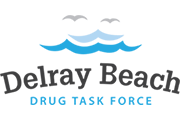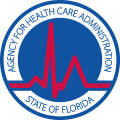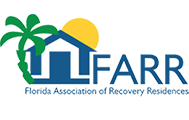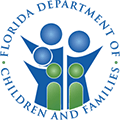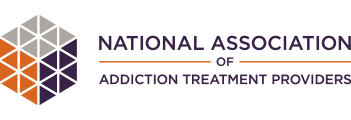Sober Tips for Surviving the Holidays
The winter holidays can be hard on anyone, especially those in recovery from substance abuse. For many people, seasonal events like Thanksgiving, Christmas, and New Year’s Eve have been characterized by partying and heavy amounts of drinking. These holidays also typically include getting together with family and friends, which can be stressful, even more so if you have a family member who is still in active addiction or alcoholism that you are forced to interact with.
For some in early recovery from chemical dependency, the process of getting clean and sober may have required relocating far away from home, such as to a halfway house or an extended care treatment program. For those people, the holidays may mark their first time home since initially getting sober. Still others may not be welcome home for the holidays due to the damage they caused to their families while drinking or doing drugs. In either case, you may find yourself this holiday season in unfamiliar and at times uncomfortable surroundings. Here are a few key pieces of advice to help you survive the pitfalls of the holiday season:
Have Something Scheduled for Your Recovery
Routine is something that is important in recovery, and just good for most people’s mental health hygiene in general. One of the biggest pitfalls of the holidays is that they disrupt the routines many recovering alcoholics and drug addicts are beginning to put in place during early sobriety – People travel home for the holidays, or they stay in unfamiliar places on vacation, and they leave behind the sober network and regular 12-step meetings or aftercare plans they have in place where they’re currently residing.
If you belong to a 12-step fellowship, the good news is that there are meetings across the country. If you are traveling or staying in an area such as South Florida, New York, or Los Angeles, there are a multitude of meetings to potentially choose from. But even if you are going to a less densely populated part of the country, don’t worry, chances are there are meetings not too far away from you as well.
The key is to have a meeting selected and a plan in place before you travel home or to your holiday destination. Most major 12-step fellowships (Alcoholics Anonymous, Narcotics Anonymous, Cocaine Anonymous, etc) list meeting schedules online for easy access. Many also have intergroup offices in each county, which serve the area by supplying meeting schedules and providing information to the general public. If you are unsure about the best meeting for your needs, you can find and call into the local intergroup office for more information. Having a meeting or meetings selected before your journey will make you more likely to follow-through with actually going to them when the time comes.
It Is Okay to Excuse Yourself from The Festivities
Prolonged social engagements are stressful in part because people feel obliged to participate, and participate as long as possible. It is completely natural to feel the need to “suit up and show up” for these important holiday get-togethers. However, that stress of keeping up appearances can often have the opposite effect, and unfortunately the holidays are a prime period for self-sabotage and relapse for that exact reason.
The most important thing to keep in mind during the holidays is that you must put your program of addiction recovery before anything else; recovery must be paramount. There is no shame in excusing yourself from the holiday proceedings if you start to feel uncomfortable, because of the social drain or because others are consuming alcohol around you. Take a walk, go someplace quiet and read or journal, maybe go to that meeting you planned out already. You can always return to the festivities when you feel ready. Most people are too wrapped up in their own merriment to question your temporary departure from the party. The expectations we place on ourselves are not usually shared by others, but only in our mind’s eye. In addition, if there is someone at your holiday celebration who is drinking profusely, excusing yourself from the party is the easiest way to avoid arguments and let that person tire themselves out.
Stay Close to Your Sober Support Network
Obviously if you’re celebrating the holidays out-of-town, staying physically close to your sober supports is not possible. However, it is good to have a list of people you can call upon when you’re not exactly feeling the holiday cheer. Just like with meetings, before you go anywhere for the holidays, have a mental list prepared of people you can call if you start to feel down or irritable, such as your sponsor, friends in recovery, your therapist if you have one, and so forth. Do not feel as though you are burdening anyone in doing so; it is conventional wisdom within the recovery community that we feel better when we help others, and by calling another addict or alcoholic over the holidays, you are helping them as much as yourself.
Keeping within the fold of your sober support system is also important if you find yourself not going home for the holidays. If you are staying in a halfway house or other recovery setting over the holidays, try to gauge beforehand how many other sober individuals will be in your area during those times – you may be surprised to find that you are far from the only one staying put. Make a plan with the other sober people in your area in order to keep each other safe and accountable. Plan a holiday activity like a potluck dinner, or a group activity like a hike or outdoor excursion. Local 12-step clubhouses typically put on events during Thanksgiving, Christmas, or New Year’s that include food and speaker meetings, so people in recovery have somewhere to be during the holidays as well.
The significance of these holidays is to bring people who care about one another together, not how much anyone does or does not drink. Whether you are going home to your family over the holidays, or you are spending the holidays with your new family in recovery, remember why you are taking part in the first place, to be around people you care about and who care about you. If anything happens that is not according to your holiday recovery plan, whether it is a fight with a family member or even a slip, make sure you talk to someone about it immediately; do not try to hide or bury that problem, or you risk making it worse.








